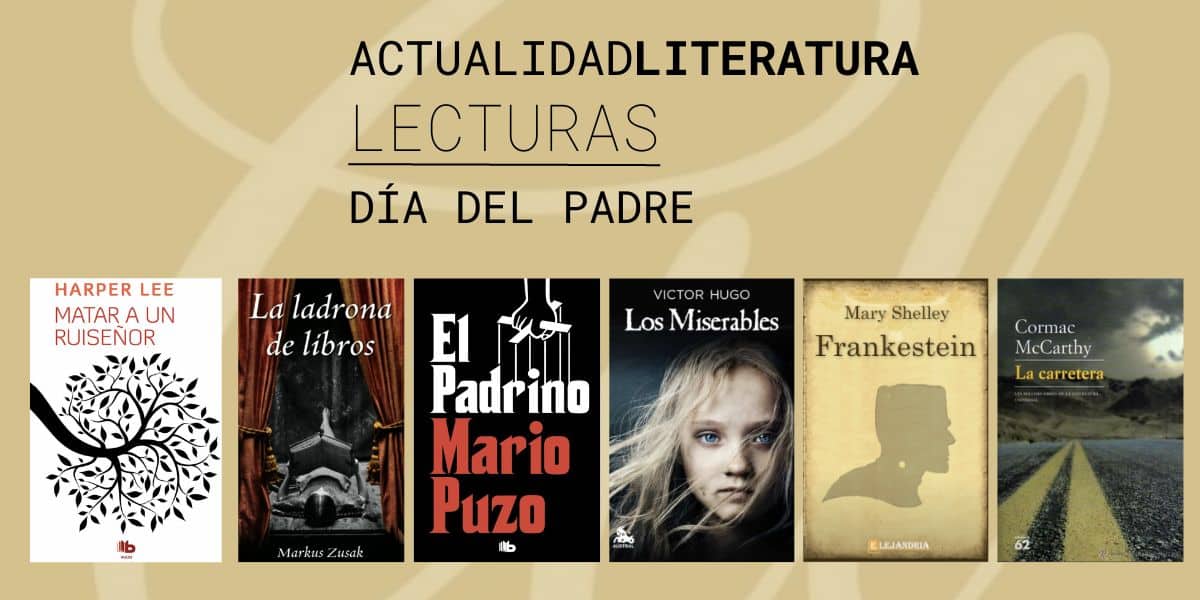
Many famous literary fathers and of all kinds, both blood and adoptive and, of course, good and bad. So for this Father's Day we are going to remember some in this title selection.
literary fathers
Atticus Finch
Kill a Mockingbird —Harper Lee
Atticus Finch is surely one of the most perfect literary fathers. And if it was already so in the story written by Harper Lee, its 1962 film version with the face and presence of Gregory Peck He ended up perpetuating it in that perfection. Finch is a widowed lawyer so loyal y honest as full y affectionate, who tries to take care of his children in the best possible way. We get to know him through the eyes of Scout, her daughter, who tells us that story in the first person, one of the most inspiring about the relationship between a father and a daughter.
Jean Valjean
This is one of those parents who can be more important than biological, because sometimes the blood does not give you that identity. This is what happens with the figure of Jean Valjean, the protagonist of one of the masterpieces of literature signed by Victor Hugo. valjean seek redemption by his own acts and, later, by a promise and one of the ways to find it is adopting little Cosette, whom he will protect until the last consequences.
Vito Corleone
The Godfather —Mario Puzo
Possibly most famous and memorable for its film version, Vito Corleone is the founder of one of the most unforgettable families, not only in book history, but also on the big screen. Actually his name was Vito Andolini and had to emigrate to the United States from his native Italy to escape death as a child. That's where he finds his place and ends up becoming the most legendary mobster, both feared and respected.
Vito Corleone is The other side of the Atticus Finch coin, but both have in common being examples with values in which their children are reflected, no matter how different and opposed those values and their ways of acting may be.
Hans Hubberman
The book Thief —Marcus Zusak
Again again we find that a biological link is not necessary to be or become a perfect parent. Hubbermann's character is another example. His adoration for his foster daughter, Liesel, leads him to devote his time and little money to teaching her to read. She also becomes a role model for her because of her nobility, its sweetie and its morality, in the midst of a context as tragic as that of the Second World War.
Victor Frankenstein
Frankenstein —Mary Shelley
Another of those characters who is not a father in the strict sense of the word, Victor Frankenstein complies with the prerogative of the fact because create life where there was none before. And the process and consequences of its creation result in one of the most famous creatures in horror and science fiction literature. The problem is in your refusal to assume that parental role, reason that will trigger the terrible events of the novel. And all with the creative authorship of a woman.
The father
The road —Cormac McCarthy
We finished with the Cormac McCarthy's latest novel, which was adapted for the big screen in 2009 by Australian director John Hillcoat, with Viggo Mortensen and Charlize Theron as the main leads.
Set in a post apocalyptic future, tells the story of a father and his son who try to survive day after day from a cataclysm that hit the Earth. It is a raw story that shows us the survival instinct most fundamental of the human being, not only to protect himself, but so that everyone can continue to live. He is one of the literary fathers more sacrificed What can we find.